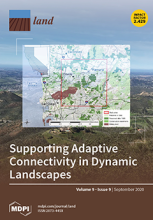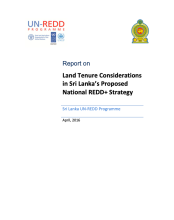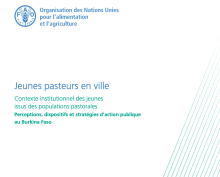/ library resources
Showing items 1 through 9 of 5885.Nine Latin American countries plan to use silvopastoral practices—incorporating trees into grazing lands—to mitigate climate change. However, the cumulative potential of scaling up silvopastoral systems at national levels is not well quantified.
Belowground roles of agroforestry in climate change mitigation (C storage) and adaptation (reduced vulnerability to drought) are less obvious than easy-to-measure aspects aboveground. Documentation on these roles is lacking.
At the request of the Sri Lankan Government an assessment was designed and conducted as part of the development of the country’s national strategy on REDD+. The assessment involved applying criteria from the Voluntary Guidelines on the Responsible Governance of Tenure of Land, Fish
Dans le contexte sahélien, depuis la fin des années 2010 des discours normatifs sur la jeunesse et le pastoralisme se sont développés, trop souvent basés sur des catégories standards impropres à décrire les réalités locales et associées dans une chaine de causalité trompeuse: désœuvrement des jeu
Climate warming and human actions both have negative impacts on the land cover of Mongolia, and are accelerating land degradation.
This essay argues that an awareness of the historical relation- ships among land use, land tenure, and the political economy of Mongolia is essential to understanding current pastoral land use patterns and policies in Mongolia.
With growing global demand for food, unsustainable farming practices and large greenhouse gas emissions, farming systems need to sequester more carbon than they emit, while also increasing productivity and food production.
Knowledge transfer depends on the motivations of the target users. A case study of the intention of Indonesian coffee farmers to use a tree canopy trimming technique in pine–based agroforestry highlights path-dependency and complexity of social-ecological relationships.
Mountainous regions are more sensitive to climatic condition changes and are susceptible to recent increases in temperature. Due to urbanization and land use/land cover (LULC) issues, Cameron Highlands has been impacted by rising land surface temperature (LST) variation.
Paginação
Land Library Search
Through our robust search engine, you can search for any item of the over 73,000 highly curated resources in the Land Library.
If you would like to find an overview of what is possible, feel free to peruse the Search Guide.






